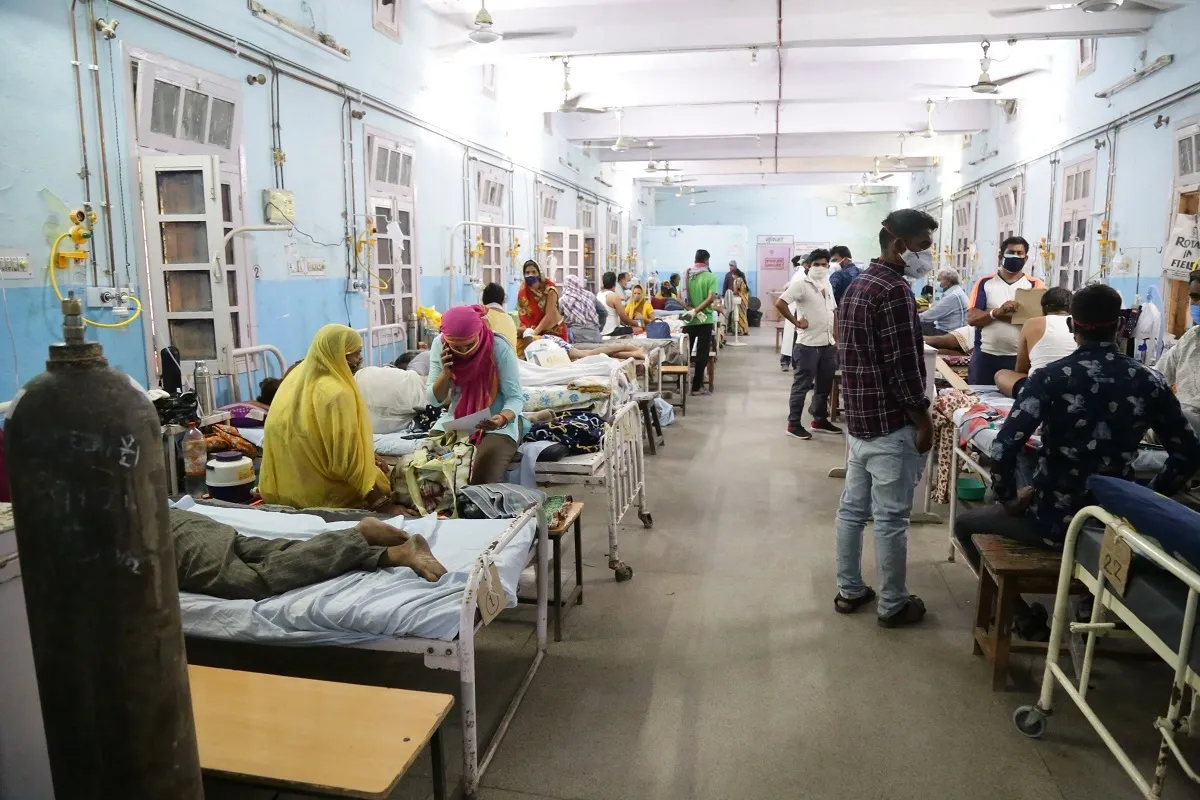Trending
Guillain-Barré Syndrome: Centre sends expert team after Maharashtra reports 101 cases; Symptoms and precautions explained
.png)
3 min read | Updated on January 27, 2025, 14:17 IST
SUMMARY
Guillain-Barré Syndrome (GBS) is a rare condition that causes sudden numbness and muscle weakness, with symptoms including severe weakness in the limbs, loose motions etc.

Maharashtra faces a surge in Guillain-Barré Syndrome (GBS) cases, with 101 reported infections and one suspected death in Solapur. Image: Representational / Shutterstock
The Centre has deputed a seven-member high-level expert team to Maharashtra to assist in managing the increasing cases of Guillain-Barré Syndrome (GBS) in the state, news agency ANI reported on Monday, citing people aware of the matter.
A suspected GBS-related death has been reported from Solapur district, according to PTI, in what is potentially the first fatality linked to the rare immunological nerve disorder in the state.
The deceased, a resident of Solapur, had recently visited Pune, where he is believed to have contracted the disease, PTI reported quoting health officials.
The total number of GBS cases in Maharashtra has risen to 101, comprising 68 males and 33 females. Among them, 16 patients are on ventilator support. Of the reported cases, 95 are from the Pune and Pimpri-Chinchwad municipal corporations, with 81 and 14 cases, respectively, according to state health department data.
State officials have implemented several measures to control the situation, including the deployment of a state-level rapid response team and intensification of surveillance activities in affected areas.
All blood samples tested negative for Zika, dengue, and chikungunya.
Water samples from various areas have also been sent for chemical and biological analysis, and health promotion activities have been scaled up. Private medical practitioners have been urged to notify public health authorities of any GBS cases.
House-to-house surveillance has covered 25,578 homes in Pune, Pimpri-Chinchwad, and rural areas, officials said.
Symptoms of GBS
Symptoms of GBS typically begin with unexplained sensations such as tingling or pain, often starting in the legs. Weakness, which progresses rapidly over hours or days, can extend to the arms, face, or respiratory muscles. In severe cases, GBS may interfere with breathing, blood pressure, or heart rate, making it life-threatening.
GBS is not contagious or inherited, and its exact cause remains unclear. It often follows gastrointestinal or respiratory infections, with Campylobacter jejuni being a leading trigger. Symptoms typically worsen within two weeks and peak by the third week.
The state health department urged the citizens to take precautions such as drinking boiled water, maintaining food hygiene, and avoiding mixing cooked and raw food items. It reassured the public that preventive measures are in place and urged individuals to visit government hospitals if symptoms, including sudden weakness or paralysis, are observed.
By signing up you agree to Upstox’s Terms & Conditions
About The Author
Next Story

